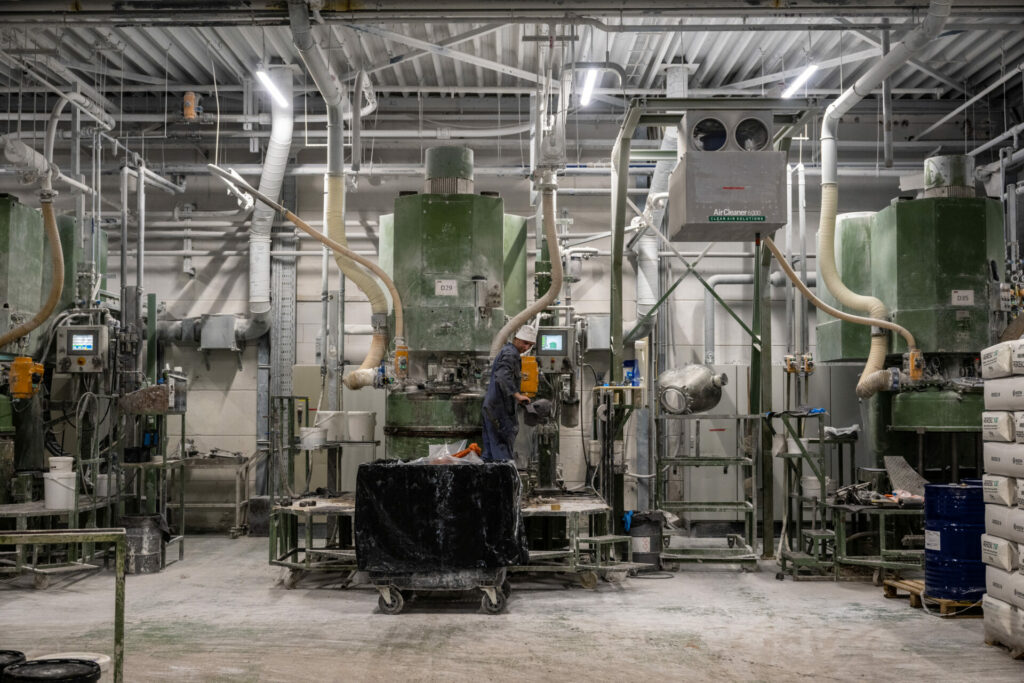Europe's industrial sector is sufficiently resilient to manage the twin impact of protectionist US policies and structurally higher energy prices over the coming years, one of the world's leading investment firms has said.
The EU's greater industrial capacity vis-à-vis the US makes it better able to implement the green transition, BlackRock's Head of Wealth for a Multi Asset Strategies and Solution (MASS) in Continental Europe, Olivier Pauwels, noted in a press conference on Wednesday.
"When it really matters, Europe has the capacity to manage challenges," Pauwels said, pointing to European leaders' handling of the recent Covid-19 pandemic and energy crisis as well as the 2008 financial crisis.
Pauwels also expressed scepticism regarding claims, put forward by multiple European business executives and policymakers, that the Inflation Reduction Act – which provides hundreds of billions of dollars in subsidies to companies which invest in green technology in the US – could cause Europe to deindustrialise.
On the contrary, he stated that high earnings growth and increasing dividend yields over the past year have actually made Europe "more attractive for investors."
Such claims have been borne out by several other recent studies. One report by the European Trade Union Confederation (ETUC) found that shareholder payouts in the EU increased by 14% last year – comfortably above the bloc's annual inflation rate of 9.2%.
European companies' soaring profitability has continued into 2023: another recent ETUC study found that real profits in the EU have risen by 1.5% this year.
No return to 'the world as we have known it'
A Senior Investment Strategist at BlackRock, Ann-Katrin Petersen, also outlined the key conclusions of the firm's recently published 2024 Global Outlook.
In particular, Petersen emphasised that the "unwinding of the energy shock" should cause both headline and core inflation to fall in the eurozone throughout 2024.
Indeed, she noted that the headline rate might even "undershoot" the European Central Bank's (ECB) 2% target next year. She added that this should provide "relief to households whose real incomes have suffered from the cost of living crisis" over the last few years.

The European Central Bank. Credit: Wikimedia Commons
However, Petersen stressed that the decline in inflation does not imply a return to "the world as we have known prior to the pandemic." In particular, she noted that in future there will likely be "more persistent supply constraints as well as higher interest rates."
She also reported that core inflation (which strips out energy and volatile food costs) will likely settle at just above 2% next year: roughly double the average annual rate from 2010 to 2019. This, she said, should cause the ECB to refrain from interest rate cuts in 2024.
BlackRock's forecast almost exactly mirrors the ECB's own analysis: the bank currently predicts that core inflation in the eurozone will average 2.0% over the next five years.
'Making lemonade out of lemons'
Both Petersen and Pauwels also expressed considerable optimism about European investment opportunities over the coming year. Echoing the report's own language, they stressed that increasing economic "volatility" – despite posing "heightened risks" for investors – also presents "more possibilities."
Petersen added that the key goal for investors should be to "try to make lemonade out of macroeconomic lemons – some of which are sour." She explained that this will likely require investors to "look deeper to detect opportunities."
Pauwels agreed: "There will be consistent macroeconomic challenges over the coming years, subdued growth, historically high core inflation. But look underneath the bonnet and there are ample opportunities across various asset classes."

